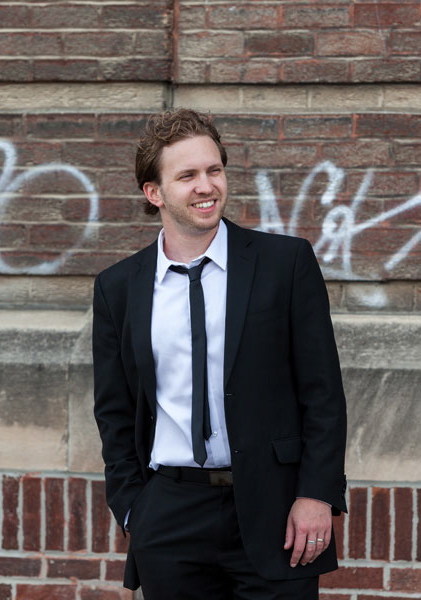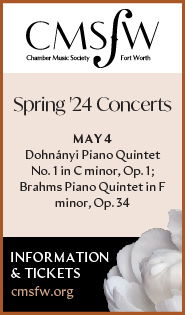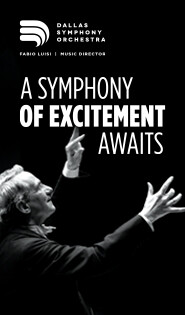Fort Worth Symphony returns with light and dark program

David Danzmayr conducted the Fort Worth Symphony in music of Johann Strauss, Piston and Tchaikovsky Friday night.
The Fort Worth Symphony is performing again in Bass Hall after a three-month strike that ended only when an anonymous benefactor donated $700,000 to cover the orchestra’s deficit. Music director Miguel Harth-Bedoya led the orchestra in a New Year’s Eve concert, but this weekend’s concerts. ed by David Danzmayr, are the first classical concerts since the strike. Any bitter feelings from the prolonged strike seemed in the past as orchestra members handed out chocolates in the lobby and ushers enthusiastically greeted patrons.
Members of the orchestra performed several pop-up concerts around Fort Worth, to keep the rust out during the walkout. And indeed, they did not sound like an orchestra that had not been playing for months.
Friday’s performance began with Johann Strauss’ Roses from the South waltzes, led by 36-year-old Austrian conductor David Danzmayr. This innocuous-seeming start included fine playing by the orchestra, and Viennese waltzes would seem like an ideal opener for the Salzburg-trained Danzmayr. However, while Danzmayr is surely expressive and evoked good playing from the FWSO, his gestures were so quirky as to be distracting.
Second on the weekend’s varied program was Walter Piston’s 1938 ballet suite from The Incredible Flutist. The suite consists of twelve brief movements, intended to evoke the arrival in a village of a circus with a magical flutist. The snake-charming flute was on this occasion guest principal Les Roettges of the Jacksonville Symphony, whose brilliant, full-bodied sound was charming indeed.
While there were a few tuning and ensemble issues overall— not everyone went with Danzmayr in his ending accelerando—overall the playing was solid. The Piston is an excellent gateway piece for American composers of the 20th century since it is programmatic, brief, and tonal.
The Fort Worth Symphony brought its characteristic sense of fun to the performance. At one point, the strings, acting as the villagers, shout and cheer as the winds and brass perform the circus march. The musicians created a fine hullabaloo, and their laughter and cheers were contagious.
The second half of the program, Tchaikovsky’s Symphony No. 6 was considerably more serious and substantial. Pathetique, “invoking pathos or pity,” is actually a mistranslation of a Russian word Tchaikovsky appended to the score, that means “passionate.” The Fort Worth Symphony brought an appropriately emotional performance to Bass Hall on Friday night.
While Danzmayr’s podium presence still proved distracting, he nonetheless evoked impressive delicacy from the Fort Worth strings in particular. The cellos and violas excelled at lyrical richness, and the violins’ clarity and ensemble were remarkable in the notoriously tricky third movement.
Unlike many symphonies that end with a flourish, Tchaikovsky chose to end the third movement loudly— so much so that Friday’s audience couldn’t resist some premature applause.
Danzmayr skillfully shaped phrases to evoke the quiet emotionalism of this symphony’s subdued fourth movement, and the trombones provided a golden tone in their chorale. The finale ends with the softest of melodies finally dying away in the basses. Danzmayr let the last chords dissipate, and then kept his arms lifted for what seemed like an age, but was perhaps twenty or thirty seconds. The audience responded, thankfully, holding their applause as they became Danzmayr’s instrument. It created a magical moment that concluded with sublime subtlety.
A regrettable distraction during the concert was an electronic buzzing on the left side of Bass Hall—a microphone left on, perhaps?—that started before the Strauss and became even louder after intermission. While it quite spoiled the first pianissimo passage in the first movement of the Tchaikovsky, it was loud enough by that time to get someone’s attention, and was finally silenced.
The program will be repeated 7:30 p.m. Saturday and 2 p.m. Sunday. fwsymphony.org


